Flood situation improving in northern region
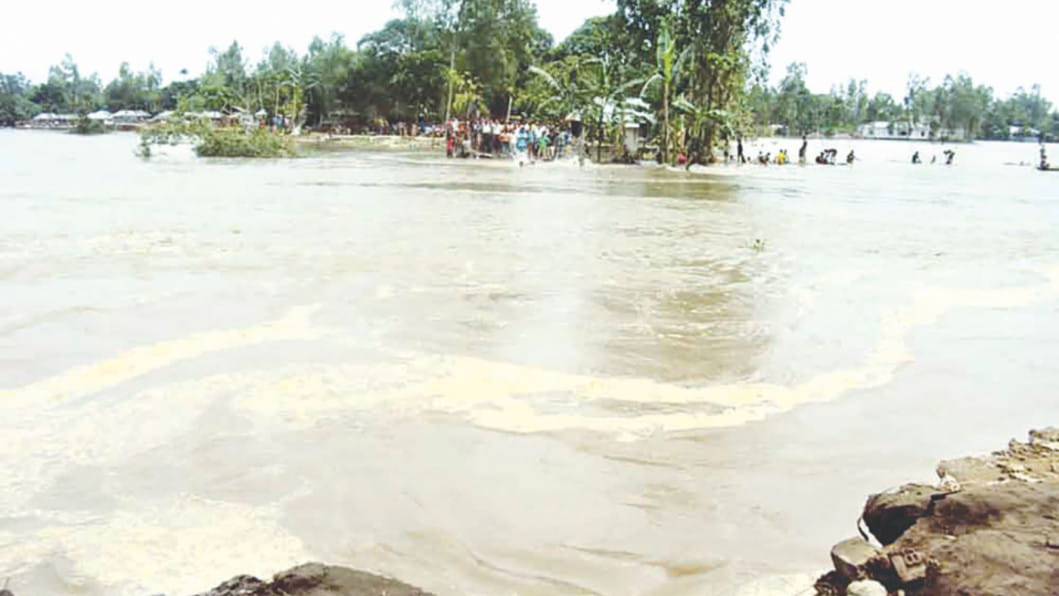
The flood situation has improved across the country as the water level of the major rivers in the northern and central districts have significantly dropped.
According to the Flood Forecasting and Warning Centre (FFWC), all the major rivers are in falling trend, but the Ganges is in the rising trend and it is flowing below the danger level.
Water level in the Brahmaputra-Jamuna is receding at most places, meaning water level in the rivers will be normal within the next four or five days, Executive Engineer of FFWC Md Sazzad Hossain said.
Among the 90 monitored water level stations, 27 river stations are flowing above danger level, a bulletin issued by the FFWC said today.
The Ghagot at Gaibandha, the Karatoa at Chak Rahimpur, the Jamuna at Bahadurabad, Sariakandi, Kazipur, Sirajganj and Aricha, the Gur at Singra, the Atrai at Baghabari, the Dhaleswari at Elasin and Jagir, the Lakhya at Lakhpur, the Kaliganga at Taraghat, the Mohananda at Chapainawabganj, the Little Jamuna at Naogaon, the Padma at Goalundo, Bhagyakul, Sureswar, and Kaniaghat the Surma at Kanaighat, the Kushiyara at Amalshid, Sheola, Sherpur-Sylhet, the old Surma at Derai, the Kangsha at Jariajanjail and the Titas at Brahmanbaria are flowing above danger level 4cm, 11cm, 59cm, 90cm, 97cm,60cm, 84cm, 100cm, 98cm, 65cm, 7cm, 95cm, 48cm, 36cm, 41cm, 33cm, 46cm, 10cm, 48cm, 83cm and 42cm respectively.
The overall flood situation may improve significantly in the country within a few days as the trend of less rainfall is seen in Bangladesh and upstream regions of India, Sazzad said.
According to FFWC, the Brahmaputra in the north was receding, but waters in the Ganges, covering the northwest are still being inflated.
Though water levels in some of the major rivers in the northern and central districts - Brahmaputra Teesta, Dharla and Jamuna -- continue to recede, several lakh people are still suffering from the devastating flood, officials and local people told BSS.
The flood situation in the Karatoa river basin areas under Gobindaganj and Palashbari upazilas of Gaibandha district and some area of Naogaon district remained unchanged as water level of the river was steady.
Department of Disaster Management officials said 900 unions of 138 upazilas in 25 districts have so far been inundated by floodwater.
The number of flood-affected families is over 9 lakh.
The flood situation improved in Rangpur division with continuous fall in water levels of the major rivers in the northern districts on the Brahmaputra basin.
The situation is getting normal gradually in Panchagarh, Thakurgaon,
Nilphamari, Lalmonirhat, Dinajpur and Kurigram. Most of the displaced people have started returning homes.
Relief activities have also been beefed up in the flood-hit areas of the districts.
A total of 1,627 medical teams in 27 districts across the country are working to provide emergency medical services to flood-affected people.

 For all latest news, follow The Daily Star's Google News channel.
For all latest news, follow The Daily Star's Google News channel. 

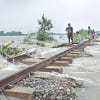
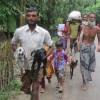
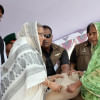
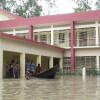
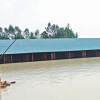


Comments